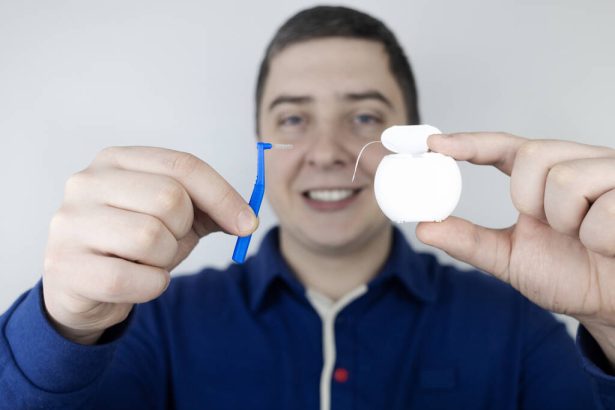Disliking Physical Intimacy with Your Partner
Many people experience discomfort with physical touch in their relationships, even if they love their partners deeply. If you dislike physical intimacy with your partner, it’s essential to understand the reasons behind your aversion. By gaining insights into these factors, you can work towards effectively addressing your discomfort and maintaining a healthy connection with your significant other.
- Disliking Physical Intimacy with Your Partner
- Expressing Your Discomfort with Physical Touch
- Setting Healthy Boundaries in Your Relationship
- Understanding the Reasons Behind Your Discomfort
- Religious or Cultural Background
- Past Traumas or Negative Experiences
- Body Image and Insecurities
- Asexuality or Low Libido
- Considering Therapeutic Support
- Practicing Empathy and Understanding
- Embracing Non-Physical Intimacy
- Finding Middle Ground
- Reflecting on Your Own Journey
- Strengthening Emotional Connection
- Reaching Out for Support
- Fostering a Strong Connection
- 1. Open Communication
- 2. Respecting Each Other’s Needs
- 3. Finding Common Ground
- 4. Seeking Support
- 5. Being Patient and Empathetic
- Concluding Thoughts
- FAQ
- Why do I feel uncomfortable with physical touch in my relationship?
- How can I express my discomfort with physical touch to my boyfriend?
- What are healthy boundaries in a relationship?
- Why am I hesitant to engage in physical contact with my boyfriend?
- Should I consider seeking professional help for my aversion to physical affection?
- How can I approach physical intimacy with empathy and understanding for my partner?
- Are there alternatives to physical touch that can deepen my connection with my boyfriend?
- How can I find a middle ground when it comes to physical touch in my relationship?
- How can personal growth and self-reflection help overcome discomfort with physical contact?
- How can I deepen emotional intimacy with my boyfriend despite my aversion to physical affection?
- Who can I reach out to for support during this journey?
- How can I maintain a strong connection despite challenges with physical touch?
- Do I need to overcome my aversion to physical affection in my relationship?
There are several potential underlying reasons why you might feel hesitant to engage in physical contact with your partner. These reasons could include past trauma, low self-esteem, personal beliefs, or physical health issues. It’s crucial not to judge yourself for experiencing discomfort and to approach the issue with compassion and understanding.
At the same time, it’s essential to ensure that you communicate your boundaries and feelings with your partner. Being honest and open about your discomfort with physical touch is vital for fostering mutual understanding and finding common ground. The next section will provide actionable tips on how to express your discomfort effectively.
Expressing Your Discomfort with Physical Touch
Being uncomfortable with physical touch in a relationship can be tough and can put a strain on your connection with your partner. However, expressing how you feel about it can help you work towards finding a solution that works for both of you.
Here are a few tips that can help you communicate your discomfort with physical touch to your boyfriend:
- Be honest: Let your partner know how you feel without blaming them for the situation. It’s essential to communicate your thoughts and feelings without making your partner feel attacked.
- Be specific: Try to be specific about what types of physical touch make you feel uncomfortable. Be clear and avoid any confusion or misinterpretation.
- Be open to compromise: Compromise is a key component of any relationship, and finding middle ground is key to resolving conflicts. Be open-minded and willing to compromise to find a solution that works for both of you.
- Listen: Your partner’s response is just as important as you expressing your discomfort. Listen carefully to their thoughts, emotions and what they are saying or not saying. Try to understand their perspective and see the situation from their point of view.
Remember, none of us are perfect, and disagreements or discomforts are normal and natural in a relationship. The important thing is to strive towards finding common ground and exploring solutions together.
Example of Effective Communication
Let’s say that your boyfriend loves to hold your hand or give you hugs, but you feel uncomfortable with this level of physical intimacy. Here’s an example of how you can communicate your discomfort:
“Honey, I love being close to you and value our relationship a lot. However, I want to be honest with you about something. I feel a bit uncomfortable when you hold my hand or give me hugs. I get anxious, and my heart races, and I don’t know why.”
“I don’t want to push you away, but I wanted you to know how I am feeling. Can we talk about this, and maybe find a new way to connect physically that makes us both comfortable?”
Using this approach allows you to communicate your feelings without placing blame or causing conflict. This type of open and honest dialogue can lead to a deeper understanding and a stronger bond between you and your partner.
Setting Healthy Boundaries in Your Relationship
When you have an aversion to physical affection with your significant other, it’s essential to establish boundaries to ensure your emotional and mental well-being. Healthy boundaries enable you to communicate your limits and expectations effectively. It’s important to remember that boundaries aren’t about rejecting touch, but rather creating a safe and comfortable space for both you and your partner.
Here are some tips for setting boundaries in your relationship:
- Communicate openly: Discuss your feelings about physical touch with your partner. Emphasize that setting boundaries doesn’t mean you don’t love them. Ensure that you both understand each other’s perspective and come up with a solution that works for both of you.
- Define your boundaries: Decide what kind of physical contact you’re comfortable with. It could be a hug, holding hands, a kiss on the cheek or just a pat on the back. Communicate these to your partner so that they know exactly what to expect from you.
- Be consistent: Once you’ve set your boundaries, remain consistent. This means that you need to maintain them so that both you and your partner always know what is acceptable and what is not.
- Respect each other: Ensure that you both respect each other’s boundaries. Mutual respect will help you maintain a healthy connection while dealing with your aversion to physical affection with your significant other.
Table: The importance of setting healthy boundaries in your relationship
| Benefits | Consequences |
|---|---|
| Helps you feel safe and secure in your relationship | Without boundaries, you may feel that your partner expects too much of you, or you may not be able to express your needs and feelings effectively. |
| Improves communication and understanding between you and your partner | Without boundaries, misunderstandings and conflicts may arise, which can lead to insecurity and confusion. |
| Increases your self-confidence and self-worth | Without boundaries, you may feel that your needs and emotions are not as important as those of your partner, which can lead to a lack of self-esteem and confidence. |
| Helps you define your personal preferences and limits | Without boundaries, you may feel that your identity is not respected, leading to feelings of resentment or even anger towards your partner. |
By setting healthy boundaries, you can establish mutual respect and understanding in your relationship. Remember to keep an open dialogue with your partner, and strive to find common ground that works for both of you.
Understanding the Reasons Behind Your Discomfort
Being hesitant to engage in physical contact with your boyfriend is a common issue that many individuals face. To gain a deeper understanding of the reasons behind your discomfort, we’ve explored potential underlying factors that may contribute to your aversion to physical affection.
Religious or Cultural Background
Religion or culture may influence your views on physical touch, leading to hesitation or discomfort when engaging in physical contact with your partner. For example, if you were raised in a culture where public displays of affection are frowned upon, you may feel reluctant to engage in physical touch with your boyfriend.
Past Traumas or Negative Experiences
Past negative experiences, such as sexual assault, abusive relationships, or childhood abuse, can cause discomfort with physical touch. These experiences may create anxiety or fear associated with physical contact, leading to hesitation and discomfort.
Body Image and Insecurities
Perhaps you feel self-conscious about your physical appearance, and this insecurity causes difficulty with physical touch. Negative body image may cause feelings of shame, which can lead to hesitancy and reluctance to engage in physical contact.
Asexuality or Low Libido
If you identify as asexual or have a low sex drive, you may feel hesitant to engage in physical contact with your boyfriend. This discomfort may stem from a lack of sexual desire, rather than any emotional or mental barriers.
Understanding the root causes of your discomfort with physical touch is a crucial step towards resolving the issue. With self-awareness, empathetic communication, and potentially professional support, it’s possible to overcome barriers and cultivate a healthy, fulfilling relationship with your significant other.
Considering Therapeutic Support
At times, it may feel daunting to confront your discomfort with physical touch in your relationship. Seeking professional help from therapists or relationship counselors who specialize in intimacy issues can provide valuable insights and tools to address this challenge. They can offer an unbiased, supportive perspective and create a safe space to discuss your concerns.
Therapy sessions can help you identify underlying factors that contribute to your aversion to physical affection with your boyfriend, explore potential solutions, and build effective communication skills. Moreover, a therapist or counselor can assist you in setting realistic goals, developing action plans, and monitoring your progress.
It’s essential to consider your comfort level and choose a therapist or counselor who makes you feel at ease. This professional can guide you through the therapeutic process and offer strategies to enhance your emotional connection with your significant other.
To find a therapist or counselor who specializes in intimacy issues, research professional associations such as the American Association for Marriage and Family Therapy or Psychology Today. Alternatively, consult with your primary care physician or inquire about referrals from close friends or family members.
Practicing Empathy and Understanding
Disliking physical intimacy with your partner can be a challenging issue to navigate. However, it’s essential to approach this challenge with empathy and understanding for your partner.
Many factors can contribute to discomfort with physical touch, and it’s crucial to acknowledge and respect your partner’s feelings. Instead of dismissing or being defensive about their aversion to physical affection, try to create a safe space for open and honest communication.
Remember that physical touch is just one aspect of a relationship, and emotional and intellectual intimacy can be just as crucial for maintaining a strong connection. Try to shift your focus to these areas and find ways to deepen your bond without relying on physical touch.
Building a compassionate mindset can also help you navigate the challenges related to physical touch. Practice empathy by putting yourself in your partner’s shoes and understanding their perspective. It can be helpful to seek out professional support and attend therapy sessions together to gain additional insights and tools for managing this issue.
Ultimately, by fostering a compassionate and understanding mindset, you can work with your partner to navigate this challenge and maintain a healthy connection built on mutual respect and understanding.
Embracing Non-Physical Intimacy
If physical touch is not your preferred way of creating intimacy, there are plenty of activities that can deepen your emotional and intellectual connection with your boyfriend.
One way to foster non-physical intimacy is to share quality time together doing things you both enjoy. This might involve going on hikes, cooking meals together, playing board games, or exploring new places.
Another strategy is to open up and discuss your thoughts, feelings, and aspirations. Try setting aside time each week to have a heart-to-heart conversation with your boyfriend. This is an excellent opportunity to connect on a deeper level and learn more about each other.
Discovering New Shared Interests
Exploring new hobbies and interests together is another way to cultivate emotional intimacy and find common ground. This might involve trying a new sport, learning a new language, or taking a class together.

Tip: Don’t be afraid to step outside of your comfort zone and try new things. This is an excellent way to build confidence and trust with your boyfriend.
Building Intellectual Intimacy
Intellectual intimacy can be fostered by engaging in meaningful and thought-provoking conversations. Try discussing your favorite books, movies, or podcasts. This can be an excellent way to learn more about each other’s values, interests, and perspectives.
| Activity | Description |
|---|---|
| Journaling | Take time to write down your thoughts and feelings. Share what you wrote with your boyfriend, and ask him to do the same. |
| Playing Games | Board games, card games, and video games can all be a fun way to bond and connect with your partner. |
| Volunteering | Consider volunteering together for a cause that you both care about. This is an excellent way to give back to your community while strengthening your relationship. |
Tip: Don’t be afraid to try different activities and find what works best for you. The most important thing is that you are both enjoying yourselves and building a stronger connection.
Finding Middle Ground
It can be challenging to navigate physical intimacy when one partner has an aversion to physical affection with a significant other. However, finding a middle ground that works for both partners is crucial for maintaining a healthy and happy relationship.
Communication is key when negotiating physical touch boundaries. Openly discussing each other’s needs, wants, and concerns will help find a compromise that both partners can be comfortable with. It’s essential to approach the conversation with empathy and understanding, recognizing that everyone has different preferences and comfort levels.
One effective strategy is to set clear and concise boundaries for physical touch. This could mean agreeing to limit physical affection in public or reserving certain types of touch for private moments. By establishing boundaries and mutually respecting them, both partners can feel heard and valued in the relationship.
Remember that finding middle ground doesn’t mean compromising personal comfort levels beyond what is comfortable. It’s about respecting and valuing each other’s needs while still maintaining intimacy in the relationship.
Reflecting on Your Own Journey
Overcoming an aversion to physical affection with your significant other can be a challenging journey that requires self-reflection and personal growth. It’s crucial to take the time to explore the reasons behind your reluctance to engage in physical contact with your boyfriend. By doing so, you can gain a deeper understanding of yourself and your needs, which can help you work towards a more fulfilling and satisfying relationship.
Engaging in self-reflection and introspection also allows you to identify areas where you may need to build self-confidence and enhance self-awareness. Some techniques that can help include journaling, meditation, or talking to a trusted friend or therapist. These activities can help you process your emotions and gain clarity on your thoughts and feelings regarding physical intimacy.
It’s important to remember that the journey towards accepting physical touch may be different for everyone. Focusing on your own progress and growth, rather than comparing yourself to others, is crucial in maintaining a healthy mindset. Set small goals and celebrate your achievements along the way, no matter how small they may be.
Practical Techniques for Self-Reflection
Here are some specific techniques you can use to enhance your self-reflection and build self-confidence:
| Technique | Description |
|---|---|
| Journaling | Writing down your thoughts and feelings about physical intimacy can help you gain clarity and perspective. Try to focus on your emotions and how your aversion to physical touch affects your relationship. |
| Meditation | Practicing mindfulness and meditation can help you tune into your emotions and gain clarity on your thoughts about physical intimacy. Focus on breathing deeply and setting the intention to understand your emotions better. |
| Talking to a Friend | Having a trusted friend to confide in can help you process your emotions and gain perspective. Choose someone who is supportive and can listen without judgment. |
Strengthening Emotional Connection
If physical touch isn’t your preferred way of connecting with your boyfriend, there are other ways to deepen your bond. Emotional intimacy is just as important, if not more so, in relationships. Here are some strategies to consider:
- Quality time. Spent focused on each other without distractions, quality time can help build trust and foster intimacy.
- Active listening. Listening to your boyfriend and showing him your understanding of his thoughts and emotions can increase mutual respect and strengthen emotional connection.
- Honesty and vulnerability. Being honest and vulnerable with your partner can help foster trust and deepen emotional intimacy.
- Shared experiences. Shared experiences, such as travel or hobbies, can help create bonding memories and strengthen emotional ties.
Make It Meaningful
Remember, strengthening emotional connection requires both partners’ effort and willingness. Make sure that the strategies you choose hold genuine meaning for each of you. Regularly communicating and checking in on each other’s emotional state can also help maintain this connection.
Reaching Out for Support
If you’re struggling with a dislike of physical intimacy with your partner, please know that you’re not alone. Many people feel uncomfortable with physical touch in their relationships, and it’s important to have a support system in place to help you navigate this challenge.
While it can be difficult to talk about your aversion to physical affection with your significant other, confiding in friends or loved ones can offer valuable guidance, understanding, and empathy. Not only can their support help you feel less isolated, but it can also provide insights into your situation that you may not have considered before.
If you’re hesitant to engage in physical contact with your boyfriend, consider reaching out to others who have experienced similar challenges. Online support groups, message boards, and forums can all be valuable resources for finding advice, support, and common ground.
Remember, seeking support is not a sign of weakness – it’s a courageous and proactive step towards building a happier, more fulfilling relationship. And if you feel overwhelmed or unable to manage your discomfort on your own, seeking the help of a therapist or relationship counselor who specializes in intimacy issues can provide valuable tools and insights.
Here’s a quote from personal growth coach, Robin Sharma, that may offer some comfort in seeking out support for your challenges:
“Great achievers are driven, not so much by the pursuit of success, but by the fear of failure.”
Fostering a Strong Connection
Despite the challenges with physical touch, it’s crucial to maintain a healthy relationship with your partner. Here are some techniques we recommend to nurture your connection:
1. Open Communication
Communicate your feelings honestly and respectfully to your boyfriend. Discuss your boundaries and find ways to compromise that work for both of you. When communicating, be sure to actively listen to your partner.
2. Respecting Each Other’s Needs
Respect your partner’s boundaries just as they respect yours. Consider their perspective and acknowledge their feelings. Remember that physical touch is not the only way to connect emotionally.
3. Finding Common Ground
Try to find activities that allow you to connect emotionally without physical touch. For example, you could watch a movie together, take a walk, or engage in a shared hobby. Focus on building shared experiences that strengthen your bond.
4. Seeking Support
Consider seeking support from a therapist or relationship counselor who specializes in intimacy issues. They can provide valuable insights and guidance to improve communication and foster a strong connection.
5. Being Patient and Empathetic
Remember to be patient with yourself and your partner. Building a strong connection takes time and effort. Practice empathy by trying to understand your partner’s perspective and being compassionate towards their needs.
By using these techniques, you can work towards nurturing a strong and fulfilling relationship despite the challenges with physical touch. It’s important to remember that every relationship is unique, and what works for others may not work for you. By staying open-minded and prioritizing communication and mutual respect, you can build a connection that works for both you and your partner.
Concluding Thoughts
At times, physical touch can be a challenging aspect of relationships. Whether it’s due to past experiences, personal boundaries, or other factors, discomfort with physical affection can cause tensions and challenges in a partnership. However, it’s important to remember that this issue is not insurmountable. With open communication, empathy, and understanding, you and your partner can work together to navigate this challenge and build a strong and fulfilling connection.
As we’ve discussed, there are numerous techniques and approaches that can help address discomfort with physical touch. From effective communication to establishing healthy boundaries, exploring underlying factors, and seeking professional support, there are many tools at your disposal. Additionally, embracing non-physical intimacy, finding middle ground with your partner, and focusing on personal growth and reflection can all contribute to a stronger connection.
Ultimately, it’s important to keep in mind that every relationship is unique, and there is no one-size-fits-all solution. What works for one couple may not work for another. However, by maintaining an open, compassionate mindset and focusing on building mutual respect and understanding, you can overcome challenges related to physical touch. It may take time and effort, but the end result can be a stronger, more fulfilling relationship with your partner.
Remember, if you are struggling with discomfort related to physical touch in your relationship, you are not alone. Many couples face these issues, and there is no shame in reaching out for support and guidance. With patience, persistence, and a willingness to work together, you and your partner can foster a strong, healthy connection that brings joy and fulfillment to both of your lives.
FAQ
Why do I feel uncomfortable with physical touch in my relationship?
There could be several reasons behind your discomfort with physical intimacy. It may stem from past experiences, personal boundaries, sensory sensitivities, or emotional factors. Understanding the root causes can help you address and overcome this discomfort.
How can I express my discomfort with physical touch to my boyfriend?
Open and honest communication is crucial in any relationship. Find a calm moment to express your feelings to your boyfriend. Use “I” statements to convey your emotions and needs, and emphasize that this discomfort is not a reflection of your feelings for him.
What are healthy boundaries in a relationship?
Setting healthy boundaries involves understanding and communicating your limits regarding physical touch. It is essential to establish and respect each other’s comfort levels and consent. Healthy boundaries foster trust and ensure both partners feel safe and respected.
Why am I hesitant to engage in physical contact with my boyfriend?
There can be various reasons for your hesitancy, such as trauma, insecurity, body image issues, or personal preferences. Reflecting on these reasons can help you gain self-awareness and work towards finding a solution that aligns with your needs and boundaries.
Should I consider seeking professional help for my aversion to physical affection?
If your aversion to physical affection is causing significant distress or negatively impacting your relationship, seeking support from therapists or relationship counselors can be beneficial. They can provide guidance and help you navigate your emotions in a healthy and productive way.
How can I approach physical intimacy with empathy and understanding for my partner?
By actively listening to your partner’s needs, concerns, and boundaries, you can develop empathy and understanding. Engage in open conversations, practice patience, and mutually explore alternative ways to foster emotional connection and closeness.
Are there alternatives to physical touch that can deepen my connection with my boyfriend?
Absolutely. Emotional and intellectual intimacy can be nurtured through activities such as deep conversations, shared hobbies, or engaging in mutual interests. Exploring these alternatives can help you build a strong bond outside of physical touch.
How can I find a middle ground when it comes to physical touch in my relationship?
Finding compromises that respect both partners’ boundaries and comfort levels is vital. Engage in open dialogue, explore new activities or experiences together, and actively work towards finding a balance that satisfies both your needs.
How can personal growth and self-reflection help overcome discomfort with physical contact?
By reflecting on your own journey, exploring any underlying reasons for your discomfort, and working on personal growth, you can build self-confidence and better understand your needs and boundaries. This self-awareness can contribute to a healthier approach to physical touch.
How can I deepen emotional intimacy with my boyfriend despite my aversion to physical affection?
Emotional intimacy can be cultivated through active listening, vulnerability, compassion, and empathy. Focus on building trust, supporting each other emotionally, and fostering deep connections in other areas of your relationship.
Who can I reach out to for support during this journey?
Trusted friends, family members, or support groups can offer guidance, understanding, and empathy. Opening up to them about your struggles can provide you with the support and encouragement you need on this journey.
How can I maintain a strong connection despite challenges with physical touch?
Open and honest communication, respect, compromise, and actively working towards common ground are key ingredients in maintaining a healthy connection. Focus on the aspects of your relationship that bring you joy and fulfillment beyond physical intimacy.
Do I need to overcome my aversion to physical affection in my relationship?
Overcoming your aversion to physical affection is a personal choice. It is crucial to remember that every relationship is unique, and what works for one may not work for another. The most important thing is finding a balance and fostering a connection that feels fulfilling and comfortable for both you and your boyfriend.






